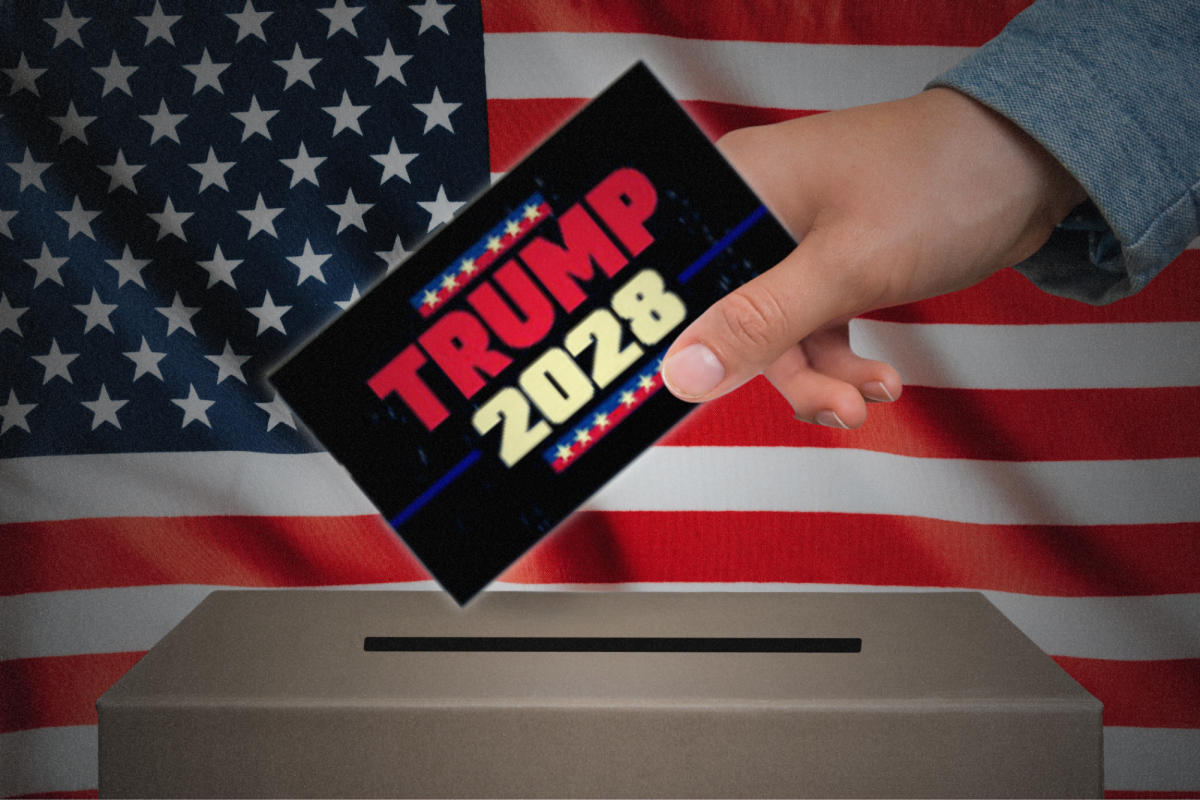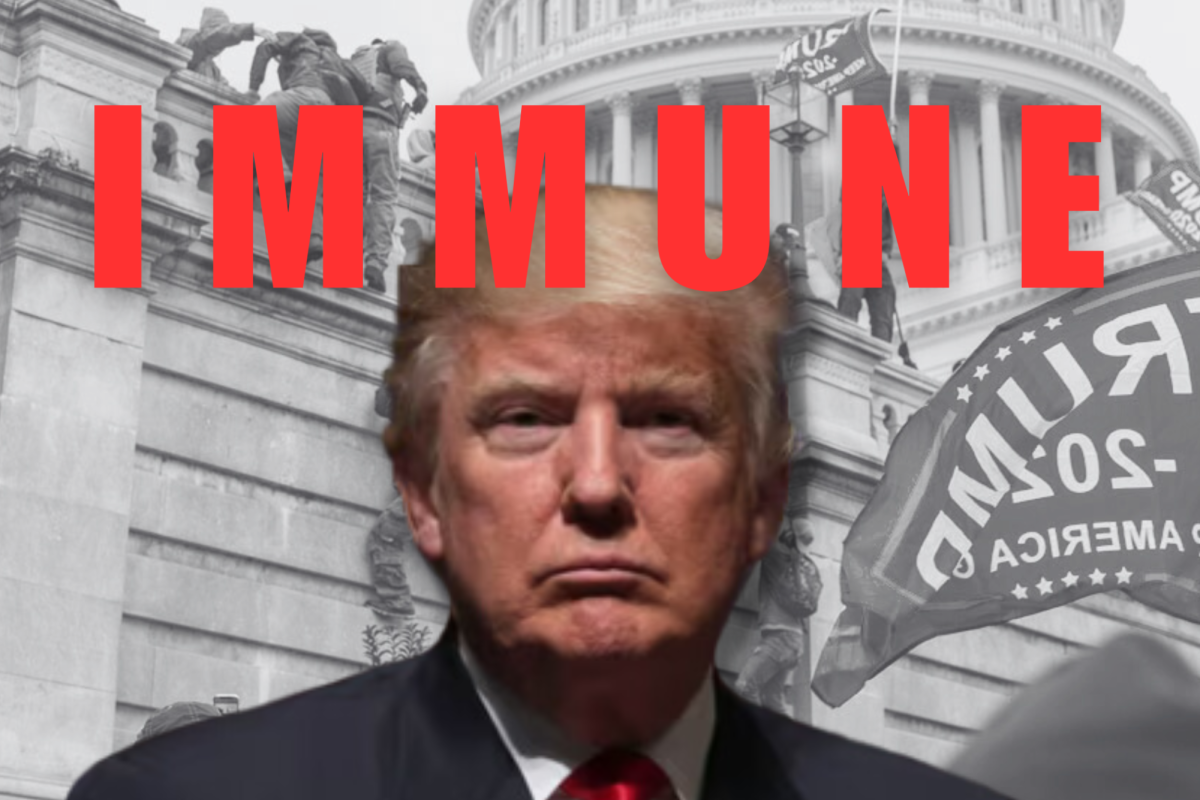Donald J. Trump v. United States: the case has a grand title.
The question that it seeks to answer is one long debated: to what extent does a president enjoy immunity from criminal prosecution regarding his actions in office?
Trump and his legal team argue that presidents should always be immune, because that’s the only way presidents can do what is necessary to achieve their goals.
The problem with this idea is that it places the president above the law, and it goes against the ideas of separation of power, since the president may disregard Congress and the Supreme Court if he likes.
The case, expected to be decided by the end of June, is likely to rule in favor of Trump, but it should instead rule against his absolute immunity.
However, absolute immunity has been protected in the past in the case of Nixon v. Fitzgerald.
According to Oyez.org, this case ruled that “the president is entitled to absolute immunity from damages predicated on his official acts” because the president holds a “unique office.”
However, the Supreme Court needs to go against this precedent in Trump’s case and take the “sometimes immune” position.
This position holds that presidents should be granted immunity in cases where a president is acting to protect the interests of the United States and the Constitution.
These actions may not be specifically outlined in the Constitution, but if immunity is to be granted, it needs to be clear that such actions are done in good faith.
Two of Trump’s indictments, dealing with election denial, stand out in violation of this description.
In his 2020 election interference case, “Trump knowingly spread lies that there was widespread fraud in the election,” said an article from CBS News.
This was done with malicious intent – Trump’s goal was to throw off the peaceful transfer of power from one president to another.
Trump’s election interference case in Georgia is equally problematic, evidenced in Trump’s phone call to Georgia’s Secretary of State, asking him to “just find 11,780 votes.”
These actions from Trump had no good intentions; rather, they were done in pure disregard to the protection of the American people and their desires.
Nixon v. Fitzgerald created the precedent that the president should be absolutely immune – but never before has a former president so blatantly tried to claim a fraudulent election.
Therefore, it’s important for the Supreme Court to hold Trump accountable for his actions, as he is not above the law.
It’s also essential that the Court communicates to Trump that further disregard for the law will not be protected.
One of the cornerstones of our nation is fairness under the law, which ensures that prosecution is not reserved to specific individuals.
If Donald Trump were to be found not guilty on the basis of immunity, it would open the door to dismissing his other actions, as well as any actions he may be inspired to take as a result of such a ruling.
Immunity should not be granted to Trump because he did not act in the interest of the people, and because it would be far too dangerous to allow him to claim immunity in the future.






























































